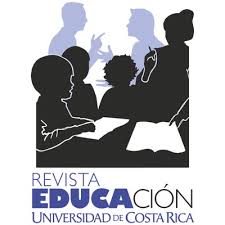Abstract
Teacher training is conditioned by the educational policies of each country, as well as the consideration society has of such profession. Thus, teacher characteristics and their training are one of the key education elements for the improvement of educational practices and teacher professional development. This study was conducted with the aim of knowing about the training in-service teachers have in four Mexican states. The sample consisted of 600 teachers from 43 schools with different level of achievement (high and low). A survey was used to collect information. Mexican teachers basically update their disciplinary knowledge; although they consider that the greater incidence in their formation is more related to didactic-pedagogical contents.
References
Referencias extraídas
Alfageme-González, M.B., Arencibia Arencibia, J.S. y Guarro Pallás, A. (2016). Contenidos e incidencia en la práctica de la formación docente en Canarias. Profesorado, 20(2), 40-54.
Alfageme-González, M.B. y Nieto Cano, J.M. (en prensa). Los docentes de la Enseñanza Obligatoria en España y las actividades de formación continuada. Perfiles educativos, 1-25.
Archibald, S., Coggshall, J.G., Croft, A. y Goe, L. (2011). High Quality Professional Teacher Development for All Teachers: Effective Allocating Resources. National Comprehensive Center for Teacher Quality. Recuperado de: http://www.gtlcenter.org/sites/default/files/docs/HighQualityProfessionalDevelopment.pdf
Barber, M. y Mourshed, M. (2007). How the World´s Best Performing School Systems Come out on Top. Recuperado de: http://mckinseyonsociety.com/how-the-worlds-most-improved-school-systems-keep-getting-better/
Bolivar, A. (2005). ¿Dónde situar los esfuerzos de mejora?: Política educativa escuela y aula. Educaçao & Sociedade, 26(92), 859-888.
Borko, H. (2004). Professional development and teacher learning: mapping the terrain. Educational Researcher, 33(8), 3-15.
Cochran-Smith, M. (2005). Teacher education and the outcomes trap. Journal of Teacher Education, 56(5), 411-417.
Easton, L.B. (2008). From professional development to professional learning. Phi Delta Kappan, 89(10), 755-776.
Escudero, J.M. (2011). La formación continuada del profesorado, un tema crucial para la mejora de la educación. Ministerio de Educación, Madrid.
Escudero, J.M., González, M.T. y Rodríguez, M.J. (2013). La mejora equitativa de la educación y la formación del profesorado. Multidisciplinary Journal of Educational Research, 3(3), 206-234.
Escudero, J.M., González, M.T. y Rodríguez, M.J. (en prensa). Los contenidos de la formación continuada del profesorado: ¿qué docentes se están formando?. Educación XXI, 1-22.
European Commission (2012). Supporting the Teaching Professions for Better Learning Outcomes. Commission Staff Working Document. Strasbourg.
Flores-Crespo, P. (Coord.), Blanco, E., Cárdenas, S., Cordero Arroyo, G., Díaz-Barriga, F., Jiménez, Y., Martínez Rizo, F. y Ornelas, C. (2016). ¿Por qué no mejora la calidad de la educación básica?. RMIE (Revista Mexicana de Investigación Educativa), 71(XXI), 1295-1303.
MECD (Ministerio de Educación cultura y Deporte) (2014). TALIS 2013. Estudio internacional de la enseñanza y el aprendizaje (Informe Español), Madrid: España. MECD. Recuperado de: http://www.mecd.gob.es/dctm/inee/internacional/talis2013/talispublicacionessep2014.pdf?documentId=0901e72b81adaba0
Naval, C. (2013). Prestigio, autoridad y profesionalización. En V. Pérez-Díaz (Dir.), El prestigio de la profesión docente en España: Percepción y realidad (pp. 125-128). Madrid: Fundación Europea Sociedad y Educación.
OCDE (2005). Teachers matter: attracting, developing and retaining effective teachers. Paris: OECD Publishing.
Pérez Gómez, A.I. (2010). Aprender a educar. Nuevos desafíos para la formación de docentes. Revista Interuniversitaria de Formación del Profesorado, 68(24, 2), 37-60.
Ramírez Rosales, V. (2010). El Normalismo: proyecto, procesos institucionales y actores. Revista Iberoamericana de Educación Superior, 1(2), 98-113. Recuperado de: http://ries.universia.net
Sanz Ponce, J.R., Hernando Mora, I. y Mula Benavent, J.M. (2015). La percepción del profesorado de Educación Secundaria de la Comunidad Valenciana acerca de sus Conocimientos profesionales. Estudios sobre Educación, 29, 215-234.
Shulman, L.S. (2005). Conocimiento y enseñanza: Fundamentos de la nueva reforma. Profesorado. Revista de Currículum y Formación del Profesorado, 9, 21-30.
Wei, R.C., Darling Hammond, L., Andree, A., Richardson, N. y Orphanos, S. (2009). Professional Learning in the Learning Profession. Technical Report. NSDC. Recuperado de https://learningforward.org/docs/pdf/nsdcstudytechnicalreport2009.pdf?sfvrsn=0



